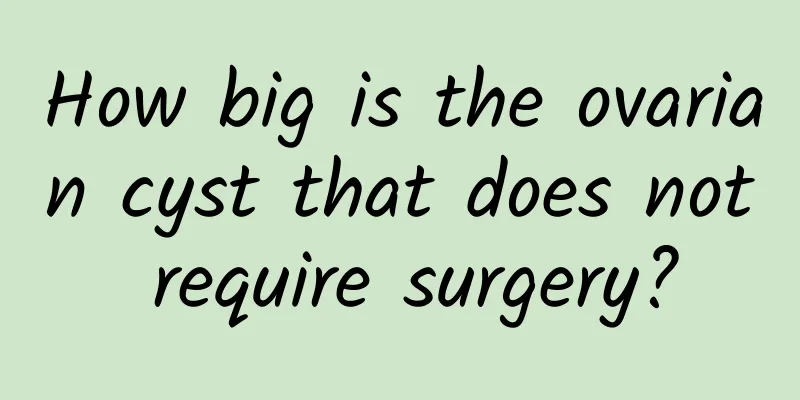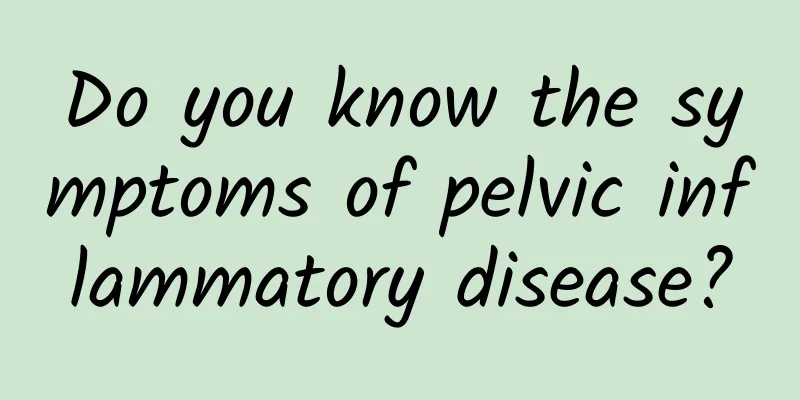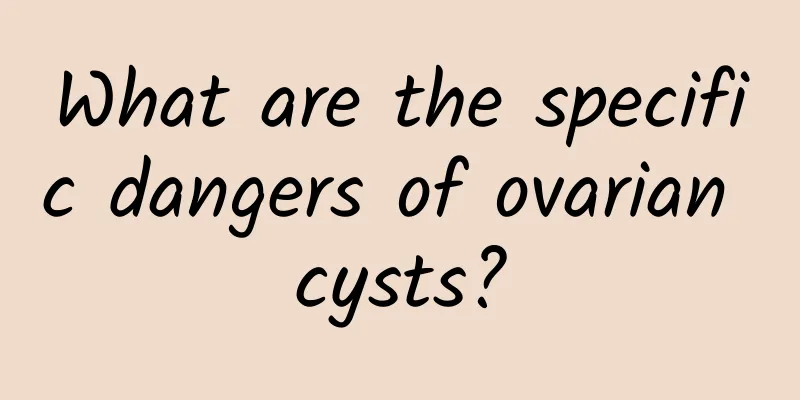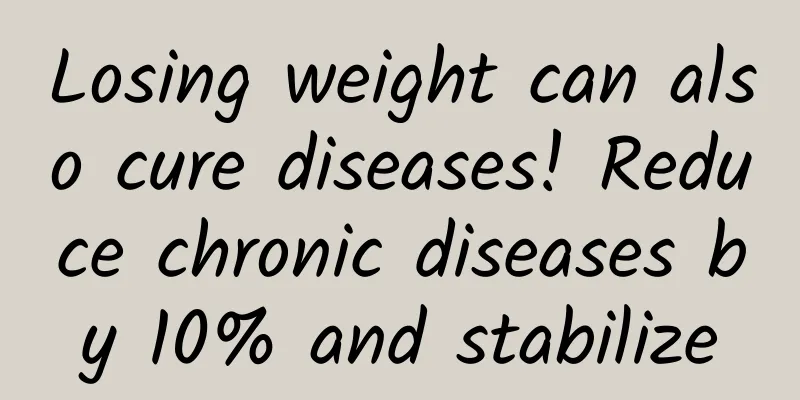How big is the ovarian cyst that does not require surgery?

|
How big does an ovarian cyst have to be before it requires surgery? Ovarian cysts are common tumors of the female reproductive system with a high incidence rate and slow development. When the ovarian cyst is small, there are almost no symptoms. If it develops, the cyst will gradually expand and often contact the spherical mass on one or both sides of the uterus. It is cystic or solid, with a smooth surface, no adhesion to the uterus, and good long-term activity. When the tumor is larger, patients often have abdominal distension and compression symptoms, such as frequent urination, constipation, palpitations, etc. Generally speaking, if the cyst is less than 5 cm in diameter and there is no evidence of a tumor, it is mostly a functional cyst and can be closely followed up, that is, once every 2 to 3 months, and then the inspection interval can be adjusted according to the situation; if the cyst is larger than 5 cm in diameter, it is mostly an ovarian tumor and generally requires surgical treatment. If accompanied by progressive dysmenorrhea, dyspareunia, and pelvic tender nodules, endometriosis cysts should be considered. Different treatment methods can be adopted according to the specific situation. Precautions for patients with ovarian cysts: Rapidly growing ovarian tumors are an indication for surgery. If a malignant ovarian tumor is found, surgery should be performed first, followed by a combination of Chinese and Western medicine. If sudden paroxysmal pain occurs in the lower abdomen, and a gynecological examination or ultrasound indicates torsion of the ovarian tumor, surgery or conservative treatment should also be performed in a timely manner. Patients with ovarian cysts should pay more attention to their health in daily life. If they find abnormal phenomena such as paroxysmal pain in the lower abdomen, they should go to a regular hospital for examination in time and find out the cause and treat it in time. Patients with cysts must pay attention to dietary hygiene and avoid eating too greasy food, which will weaken the body's resistance to bacteria. |
<<: What should I check at the hospital for irregular menstruation?
>>: What are the symptoms of adenomyosis cancer?
Recommend
What is the menopause test method?
I believe that more and more people understand th...
What are the main symptoms of pelvic inflammatory disease?
What are the main symptoms of pelvic inflammatory...
What should I do if there is light red discharge after my period ends?
What should I do if there is light red discharge ...
What are the causes of premature amenorrhea?
The causes of premature amenorrhea include geneti...
What should I do if there are any changes in leucorrhea caused by ovarian cysts?
Patients with ovarian cysts will have many sympto...
What are the causes of cervical erosion in women? Check out the 7 causes of cervical erosion
Cervical erosion is familiar to everyone. It is a...
Obesity and cancer! 80-year-old woman gets two birds with one stone surgery and is reborn
Obesity is the root of all diseases and is one of...
How to know whether the gestational sac has been expelled in spontaneous abortion
In case of spontaneous abortion, you can determin...
What are the signs of successful medical abortion? You will know after reading this
Medical abortion is a very common way to terminat...
What can apples eat to reduce uterine fibroids? Benefits of eating apples for uterine fibroids
Uterine fibroids are a common gynecological disea...
Causes of Dysmenorrhea
Causes of Dysmenorrhea: Dysmenorrhea may be cause...
What causes cervicitis?
Women over 40 are no strangers to cervicitis. Alm...
What are the types of pelvic inflammatory disease?
The onset of pelvic inflammatory disease is relat...
Kill fat instantly! 3 Cabbage Juices to Help You Lose Weight
Cabbage is a great food for weight loss. Because ...
Is it normal for women to have cervical erosion and bleeding? Analysis of the causes of bleeding from cervical erosion in women
In life, cervical erosion is a common gynecologic...









